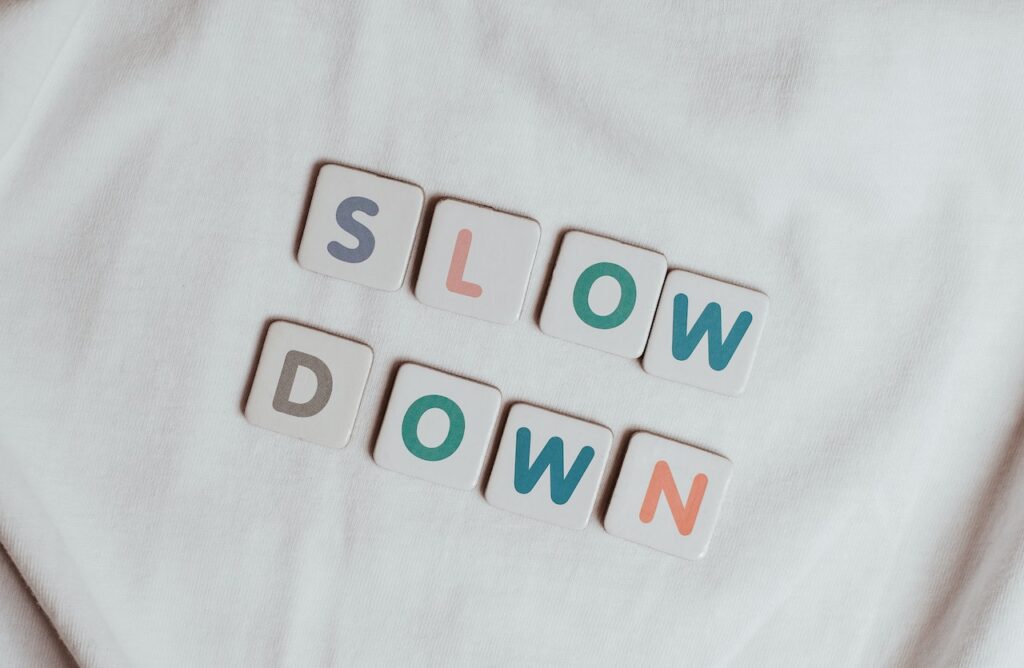Energy Levels by Age: How Do You Keep It?
Lifestyle • March 31, 2023 • 10min read

INTRODUCTION
Let’s face one simple truth in life: we aren’t getting any younger. Drop in energy levels becomes evident. Suddenly, the activities that once came easily to us become more difficult, and we find ourselves feeling tired more often. Over time, our body and mind undergo inevitable changes. A decline in energy levels is one of the most noticeable changes that come with aging. During adulthood (age 20-60), our energy levels have already dropped significantly compared to our childhood. When we age further beyond elderly, we most likely will reach a point where we no longer have enough energy to perform basic functions like bathing, dressing, or even eating without any help. To make matters worse, we may even start losing our ability to hear, see and remember. It is sad but it happens to most of us terminally due to aging and energy depletion which is a major contributor to this progression.
Fortunately, there are many scientifically proven methods for maintaining optimal health and energy levels as we age. In this article, we’ll explore some of the most effective strategies for promoting longevity and vitality. Whether you’re in your 20s or your 80s, read on to learn more about how to maintain your energy levels and improve your overall health even as you age.
Is There a Decline in Energy Levels as One Ages?
Yes, the energy levels decline as we age. Aging is associated with many factors that cause a lack of energy, including inadequate sleep, poor nutrition, dehydration, sedentary lifestyle, chronic stress, hormonal imbalances, underlying medical conditions such as anemia, depression, anxiety, or thyroid disorders, and certain medications or treatments.
These factors negatively impact our mitochondrial health, affecting the body’s ability to generate energy, thereby leading to fatigue, and decreased overall energy levels. Addressing these underlying medical issues can help improve energy levels due to aging. NAD+ molecule plays a critical role in cell’s energy management.
When Decline in Energy Begins?
The decrease in energy levels can occur gradually over time. Peak energy is observed at around 20s to 30s, and thereafter, energy levels and total energy expenditure typically begin to drop, where the body’s metabolic rate slows down and physiological functions are starting to be less efficient, leading to a decrease in energy production. It starts becoming even more noticeable around the 40s and 50s.
Here are some signs that can indicate a significant drop in energy levels:
- Fatigue: You get tired as you age. Feeling out of energy even after getting enough rest or sleep.
- Decreased stamina: Unable to perform tasks that were once easy due to a lack of endurance.
- Difficulty concentrating: Trouble staying focused or alert during tasks that require mental energy.
- Decreased physical activity: Avoiding physical activity due to a lack of energy or motivation.
- Increased recovery time: Taking longer to recover from physical exertion or illness.
- Decreased metabolism: Difficulty maintaining a healthy weight despite healthy eating habits and regular exercise.
- Mood changes: Feeling irritable, anxious, or depressed due to a lack of energy and motivation.
It’s important to note that these signs can also be attributed to various other health conditions, so it’s essential to consult a healthcare provider if you’re experiencing any of the mentioned symptoms.

How Can We Keep Up Our Energy Levels?
Although a decline in energy levels may be inevitable as we age, there are several things we can do to maintain and even boost our energy levels.
Here are some of the most effective strategies to get more energy as we age:
- Exercise: Regular physical activity can improve heart health, increase muscle mass and strength, boost energy levels, and improve metabolic rate. It can help improve energy levels by increasing blood flow and promoting maximum oxygen delivery to your organs, resulting in peak performance, improved strength and endurance, and reduced stress and anxiety.
Tips: Aim for at least 30 minutes of moderate-intensity exercise most days of the week. Walking, cycling, swimming, and strength training are all great options. Incorporate both aerobic and strength training exercises into your routine, start with low impact exercises and gradually increase intensity.
- Diet and nutrition: Aging can impair our ability to metabolize and utilize nutrients from our diet, depriving the cells of fuels for energy production. A diet that is high in refined sugars and processed foods can lead to inflammation and oxidative stress, which can contribute to cellular damage and mitochondrial dysfunction. On the other hand, a diet that is rich in whole, nutrient-dense foods such as fruits, vegetables, lean protein, and healthy fats can provide the necessary nutrients for optimal cellular function and energy production.
Tips: Eat smaller meals frequently instead of a large meal and avoid skipping meals. Stay hydrated by drinking plenty of water throughout the day. Avoid sugary drinks and limit your caffeine intake, especially in the afternoon and evening, as it can interfere with sleep.
- Supplementation: Certain vitamins, minerals, and bioactive compounds can boost energy levels. Supplementation can fix the gap due to deficiencies and aging. For example, B vitamins are essential co-factors for energy production in the mitochondria, where the body’s energy is produced. Vitamin B12 is known to give the most energy. This vitamin plays a key role in converting food into energy and maintaining healthy red blood cells. It helps in the production of ATP (adenosine triphosphate), the main energy source for cells in the body. Additionally, there are also specific supplements that can give a boost to your overall energy levels: NMN, coenzyme Q10, and creatine. Supplementation with these nutrients can help support energy metabolism and improve energy levels.
Tips: Choose the suppliers that are certified by third party laboratories to ensure safety and bioavailability. Consult your doctor for more personalized recommendations, especially if you have underlying conditions.
- Rest and sleep: During sleep, the body repairs and regenerates cells with high energy demands. Sleep deprivation or poor sleep quality can affect energy levels because it triggers mitochondrial dysfunction, resulting in poor energy production. Restful sleep is also important for the regulation of hormones that impact energy levels, such as cortisol and melatonin. But as we age, the amount and quality of sleep we get may decrease due to various factors, leading to a decline in energy levels as the body is not able to fully repair/regenerate cells or regulate hormones. Therefore, getting adequate and restful sleep is crucial in combatting age-related energy level decline.
Tips: Aim for 7-8 hours of uninterrupted sleep per night and establish a consistent sleep schedule. Create a sleep-conducive environment, avoid screen time before bed, and practice relaxation techniques like meditation or deep breathing. Avoid caffeine after noon or at least 6 hours before bedtime.
- Stress Management: Chronic stress can have a significant impact on energy levels by causing a dysregulation of the hypothalamic-pituitary-adrenal (HPA) axis and increased production of stress hormones such as cortisol. Over time, this can lead to reduced glucose uptake in cells and decreased ATP production, which is the main energy currency of the body. Furthermore, stress-induced inflammation can lead to oxidative damage and impaired mitochondrial function, further contributing to decreased energy levels. Managing stress through relaxation techniques, mindfulness, and stress-reducing activities can help mitigate the negative impact of stress on energy levels.
Tips: Manage stress by practicing relaxation techniques regularly, such as deep breathing or meditation. It’s also important to set realistic goals, prioritize activities, and establish boundaries to prevent overwhelming situations. Seeking support from family and friends or a mental health professional can also be beneficial.
- Quit smoking: Smoking aggravates age-related energy decline by reducing the amount of oxygen that is delivered to the body’s tissues. Nicotine, the addictive substance found in cigarettes, also constricts blood vessels, reducing blood flow and the amount of oxygen that can be delivered to cells. This can lead to fatigue and reduced physical endurance. Smoking further increases the production of free radicals, which are damaging molecules that can cause mitochondrial dysfunction, cellular damage, and inflammation, further contributing to energy decline. Long-term smoking can also lead to chronic obstructive pulmonary disease (COPD), which impairs lung function, leading to fatigue and decreased energy levels. Experts note that within 72 hours of quitting smoking, people will start breathing easier and energy levels rise.
Tips: To quit smoking, consider seeking professional help and replace bad habits with good ones. Engage in healthy habits such as exercise and meditation to reduce cravings. Create a plan, stay committed, be patient and persistent. Set a quit date, remove triggers, and avoid situations that make it difficult to resist the urge.

What’s the Best Way to Keep Cell Energy Levels Up As We Age?
While all the methods listed above are effective in maintaining energy levels as we age, one method that stands out as the best is regular exercise.
In fact, study finds that people over 70 who have exercised regularly for years show similar physiological characteristics of much younger individual. When scientists compared, the participants’ hearts, lungs, and muscles were in equivalent shape to those of people in their 40s.
In addition, exercise has been shown to increase the production of endorphins, which are natural feel-good chemicals that can improve mood and reduce stress and anxiety, making us feel energized throughout the day. As such, regular exercise can not only help maintain physical energy levels, but also contribute to a more positive and energetic outlook on life.

Final Thoughts
Aging is an inevitable part of life that brings about a decline in energy levels. However, there are several ways to delay and even improve this decline. Regular exercise, a healthy diet, supplementation, sufficient sleep, stress management, and quitting smoking are all effective ways to maintain high energy levels.
Remember, small lifestyle changes can make a big difference over time.
By combining these factors and methods, it can help prevent and improve age-related energy level decline.
RESOURES:
Journal/Institution: The World Journal of Men’s Health
Title: Energy Metabolism and Aging
Link: https://www.ncbi.nlm.nih.gov/pmc/articles/PMC7994661/
Journal/Institution: Ageing Research Reviews
Title: Energy Expenditure and Aging
Link: https://www.ncbi.nlm.nih.gov/pmc/articles/PMC2818133/
Journal/Institution: Frontiers in Psychology
Title: The Effect of Chronic Exercise on Energy and Fatigue States: A Systematic Review and Meta-Analysis of Randomized Trials
Link: https://www.ncbi.nlm.nih.gov/pmc/articles/PMC9206544/
Journal/Institution: Nutrients
Title: Nutrition, Diet and Healthy Aging
Link: https://www.ncbi.nlm.nih.gov/pmc/articles/PMC8746852/
Journal/Institution: Frontiers in Genetics
Title: Dietary Supplements and Natural Products: An Update on Their Clinical Effectiveness and Molecular Mechanisms of Action During Accelerated Biological Aging
Link: https://www.ncbi.nlm.nih.gov/pmc/articles/PMC9096086/
Journal/Institution: Journal of Clinical Sleep Medicine
Title: The Role of Sleep Duration in the Regulation of Energy Balance: Effects on Energy Intakes and Expenditure
Link: https://www.ncbi.nlm.nih.gov/pmc/articles/PMC3525993/
Journal/Institution: American Journal of Physiology: Regulatory, Integrative and Comparative Physiology
Title: Chronic and acute effects of stress on energy balance: are there appropriate animal models?
Link: https://www.ncbi.nlm.nih.gov/pmc/articles/PMC4329465/
Journal/Institution: Asthma+ Lung UK
Title: How can I quit smoking
Link: https://www.asthmaandlung.org.uk/living-with/stop-smoking/quit
Journal/Institution: Journal of Applied Physiology
Title: Cardiovascular and skeletal muscle health with lifelong exercise
Link: https://journals.physiology.org/doi/full/10.1152/japplphysiol.00174.2018?journalCode=jappl



